program approval form for approval of new programs and deletions or modifications to an existing program. more information is locat
Program Approval Form
For approval of new programs and deletions or modifications to an
existing program.
More information is located on page 2.
Action Requested:
Program Type: (check one)
X
Create New (SCHEV form required except for minors and certificates)
B.A.
B.S.
Minor
Delete Existing
Undergraduate Certificate
Modify Existing (check all that apply)
M.A.
M.S.
Ph.D.
Title (requires SCHEV approval except for minors, certificates)
X
Graduate Certificate
Concentration (Add/Modify)
Application Requirements
Other:
Degree Requirements
Admission Standards
Other Changes:
College/School:
College of Science
Department:
COS Dean’s Office
Submitted by:
Rick Diecchio
Ext:
X31208
Email:
[email protected]
Effective Term:
Fall
2010
Please note: For students to start a new degree, minor, certificate or
concentration, the program must be fully approved, entered into
Banner, and published in the University Catalog.
Justification: (attach separate document if necessary)
Existing
New/Modified
Program Title:
Advanced Biomedical Sciences
Concentration Title(s):
Advanced Biomedical Sciences
Admissions Standards / Application Requirements: (Required only if
different from those listed in the University Catalog)
Degree Requirements: (Consult University Catalog for models, attach
separate document if necessary using track changes for modifications)
TOTAL CREDITS REQUIRED:
20 credits
Approval Signatures
Department
Date
College/School
Date
If this program may impact another unit or is in collaboration with
another unit at Mason, the originating department must circulate this
proposal for review by those units and obtain the necessary signatures
prior to submission. Failure to do so will delay action on this
proposal.
Unit Name
Unit Approval Name
Unit Approver’s Signature
Date
For Graduate Programs Only
Graduate Council Member
Provost Office
Graduate Council Approval Date
Advanced Biomedical Sciences Graduate Certificate
A NEW CERTIFICATE PROGRAM JOINTLY OFFERED BY
GEORGE MASON UNIVERSITY & GEORGETOWN UNIVERSITY
Introduction
============
“Pre-Health” or “Pre-Medical” students comprise a significant fraction
of the student body in most undergraduate universities. Each year,
approximately 42,000 individuals apply to the U.S. allopathic medical
schools. Only about 18,000 gain acceptance each year, although for
many, it is the second or third attempt at admission. The large number
of people who are “between undergraduate and medical school” has
presented both difficulties and opportunities for the academic
community. On the one hand, they have placed strains on traditional
graduate programs, which typically do not welcome students who intend
to switch direction if admitted to professional school. On the other
hand, schools have benefited in multiple ways from “special” programs
that specifically serve such students, the main benefits being
increased enrollment in classes and other programs and fiscal
benefits. These programs fall into several distinct categories
(information about specific programs can be accessed through the
webpage http://services.aamc.org/postbac/)
We propose a post-baccalaureate certificate program in Advanced
Biomedical Sciences (ABS). This program is aimed at students who
typically have most or all of their prerequisites for medical school,
but otherwise have a modest science background, and/or may also need
to improve their Medical College Admission Test scores, which heavily
emphasize the sciences.
Applicants and Students
=======================
The Advanced Biomedical Sciences Certificate Program would encourage
applications from students who fit the following criteria:
*
A Bachelor’s degree from an accredited university
*
The desire to pursue a career in medicine or dentistry
*
Completion of all or most of the prerequisite courses for medical
school (biology, chemistry, organic chemistry, physics, math)
*
Limited training in biomedical-related sciences at the
undergraduate level (non-science majors, for example) or modest
grades in sciences as undergraduates
*
Overall credentials suitable for acceptance to graduate programs
in the College of Science at George Mason University and the
Georgetown Graduate School of Arts and Sciences.
We anticipate a program, at full capacity, of 50 new students
annually.
Value of the ABS Certificate Program to the Institutions
========================================================
The main benefits of having this program are:
*
Synergy with the other “pre-medical”, “post-bacc”, or “special”
programs at Georgetown University and the pre-medical program and
biomedical effort at George Mason University
*
Synergy with other graduate programs at Georgetown University
Medical Center (GUMC) and George Mason University (GMU), resulting
in “critical mass” for graduate courses and adding to the
diversity of students in programs
*
Extension of our leadership in the area of “special” programs and
more efficient utilization of faculty and resources devoted to
these programs
*
Laying the groundwork for more extensive biomedical science
offerings at the George Mason Prince William Campus (PWC).
Required Resources
==================
The ABS Certificate is designed as a non-thesis, certificate program,
with no wet-lab component. Its establishment would be a joint effort
of GMU and GUMC. Classroom resources, library, and various student
services are available for this endeavor at PWC. Some student services
would require cooperative efforts at both institutions. Faculty will
be identified from both institutions for the required teaching effort.
Where expertise is not readily available, additional hires (PT or FT)
may be necessary. Staff will be hired or reassigned to support this
effort. Fiscal support for this effort will be governed by a specific
agreement to be adopted by GUMC and GMU. In addition to classroom,
faculty and student services and associated costs, it is anticipated
that a significant student recruiting effort will be required in the
early years of this program.
Applicant Pool & Recruiting Strategies
Student applicants are expected to come from different sources.
*
The applicant pool of the GUMC Special Masters Program (GUMC SMP).
The GUMC SMP has an applicant pool of approximately 900 for a
class size of 180. Students who are not successful gaining
entrance to this program may be interested in the ABS program.
*
Outreach programs to Virginia medical schools (EVMS, UVA, VCU,
VCOM), including, potentially, formal linkage programs.
*
Specific, targeted recruiting efforts at GMU, as well as Northern
Virginia and the region as a whole.
*
Specific aspects of this certificate program not available at
GUMC, including admission test (MCAT, DAT, etc.) preparation,
linkages to medical schools, organized shadowing and volunteer
experiences, and ties to the Northern Virginia community, may be
of interest to potential applicants.
Curriculum
==========
Students will ordinarily matriculate into the program in the fall
semester, completing a minimum of 20 credits for the ABS certificate
by the end of the Spring semester. Those students who have completed
the program, and who will be required to take an admissions test
(MCAT, DAT, etc.) will have the opportunity to take a test a
preparation course, under a special arrangement with Princeton Review,
Kaplan or another firm. The actual MCAT is given multiple times during
the summer. Students may elect to enroll in the program on a part-time
basis as well.
Coursework will be tailored to the individual student’s needs if
necessary. In particular, some students may require completion of one
or two prerequisite courses, entailing modification and prolongation
of the course of studies. For a student entering the ABS program with
all pre-medical prerequisites completed, the typical schedule will
consist of the following:
Fall Semester
*
Cellular and Molecular Physiology (4 credits): This course is
currently being taught as a graduate course by physiology faculty
at GUMC; it is ideal for beginning graduate students. The course
covers basic biochemical processes and cellular signaling
mechanisms.
*
Biostatistics and Epidemiology (3 credits): This course currently
exists as part of the GUMC graduate program offerings. It covers
basic principles of biostatistics and epidemiology in both a
theoretical and practical context.
*
Cell Biology & Microscopic Anatomy (3 credits): The course covers
basic histological techniques, ultrastructure of the cell, basic
tissue types and histology of specific organ systems.
Structural-functional and clinical correlations are described.
Lectures are supplemented with slide review sessions. Microscopic
laboratory reviews are conducted to teach students how to view
histological sections using microscopes. This will be a new
course.
*
Physician and Society (2 credits): This course explores the
cultural, social and economic and ethical factors that affect the
practice of medicine in today’s world through a series of lectures
by physicians and other experts and student presentations. It will
be based on content already developed in a similar course at GUMC.
Spring Semester
*
Fundamentals of Physiology (5 credits): This is a graduate course
currently taught for the GUMC graduate programs; it covers the
basic elements of systems physiology. The course will be offered
on video from GUMC.
*
Introduction to Human Anatomy (2 credits): This course will
complement the Fundamentals of Physiology course, following a
parallel schedule to allow integration of material between the two
courses. The course will involve lectures and non-cadaveric
laboratory sessions. This will be a new course.
*
Biomedical Career Pathways (1 credit): This course is a staple of
the Special Master’s Program at GUMC. It consists of lectures,
special presentations and exercises relevant to the application
and decision making process in pursuing a medical education.
Post-Certificate Admissions Test Preparation
*
Medical College Admissions Test (MCAT) or Dental Admission Test
(DAT) Preparation (no credit): During the spring semester,
students will prepare for the MCAT or DAT, or other admission exam
appropriate to their proposed area of study. This course will be
offered under a contract with an established preparation firm
(Princeton Review, Kaplan, or Exam Crackers).
Faculty & Instruction
=====================
Each course in a program like this is typically taught jointly by many
faculty members, each of which provide one to several lectures on
topics in her/his specialty area. As such, there will not be one
specific instructor for any of these courses. Faculty teaching in this
program will be on the faculty of GMU and GUMC at a ratio of
approximately 1:1. At the outset of the program, however, because GUMC
has expertise and prior experience in offering biomedical courses and
programs, we will rely on them to a greater degree for the first year
or so. Some lectures will be delivered remotely from GMUC to GMU. GMU
faculty participating in the program will include tenured and
tenure-line faculty, term faculty, and adjunct faculty, most of whom
already are on our faculty.
Advising Services
A key driver of the success of the ABS program will be the thorough
and personalized advising and support system, especially for the
medical school application process. Advising will be a key element in
the job descriptions of staff and faculty of the ABS program.
Completion of the Program
Students completing 20 credits with a GPA of 3.0 or above will be
awarded a Post-Baccalaureate Certificate in Advanced Biomedical
Sciences, verifying the accomplishment. With this certificate, it is
anticipated that students will be more qualified and more competitive
for medical or dental school, thereby improving their chances for
acceptance.
Tuition, Financial Aid and Program Revenue
Tuition of $24,000 is suggested for the inaugural class of the ABS
Program. This would result in projected income of $480,000 in year one
if 20 students are enrolled; in year 5, at the same tuition rate,
projected income would be $1.2M. Excluding indirect costs, the program
would have a positive cash flow from year one, and generate
approximately $800,000 in net income annually by year five. Because
students will be enrolled in an official certificate program, they
will be eligible for Federal loans and private loans.
Market Analysis
===============
Currently, there are a number of academic enhancement programs of
various types, as outlined above, across the nation. In addition to
the Special Master’s Program and GEMS program at GUMC, there are small
programs at Eastern Virginia Medical School and the Medical College of
Virginia (VCU). There is a Post-Baccalaureate Premedical Certificate
Program at the American University, but contains basic introductory
science classes, and is therefore focused on a lower level of
preparation. However, we are not aware of any formal certificate
programs similar to the ABS Program in the tri-state area, and we
expect that with cross-recruiting for this and the GUMC SMP, we will
be able to successfully enroll 15 to 20 students for the first class
(anticipated to matriculate in fall, 2010), and grow to the projected
class size of 50 students within 5 years. The graduate program at GUMC
has been aggressively marketing its Special Master’s Program for the
past few years, and has considerable experience in this area.
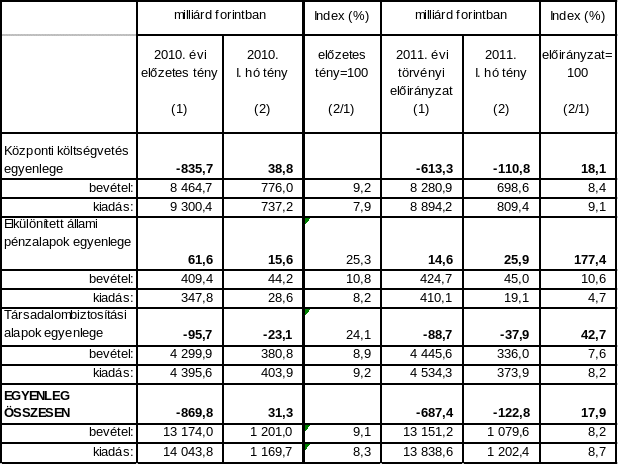 0 NEMZETGAZDASÁGI MINISZTÉRIUM TÁJÉKOZTATÓ AZ ÁLLAMHÁZTARTÁS KÖZPONTI ALRENDSZERÉNEK 2011
0 NEMZETGAZDASÁGI MINISZTÉRIUM TÁJÉKOZTATÓ AZ ÁLLAMHÁZTARTÁS KÖZPONTI ALRENDSZERÉNEK 2011 GROUP CONSTITUTION TEMPLATE (ADVANCED) THIS IS AN ADVANCED CONSTITUTION
GROUP CONSTITUTION TEMPLATE (ADVANCED) THIS IS AN ADVANCED CONSTITUTION JABÓN (AUTOR A CAÑAMERO) L 1 5 10 15
JABÓN (AUTOR A CAÑAMERO) L 1 5 10 15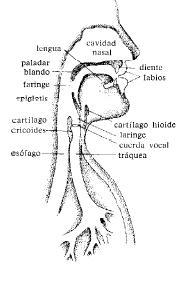 SONIDO ONDA MECÁNICA LONGITUDINAL ESFÉRICACADA PUNTO PERTENECIENTE A LA
SONIDO ONDA MECÁNICA LONGITUDINAL ESFÉRICACADA PUNTO PERTENECIENTE A LA DICTAMEN DAT 2510 BUENOS AIRES 7 DE ENERO DE
DICTAMEN DAT 2510 BUENOS AIRES 7 DE ENERO DE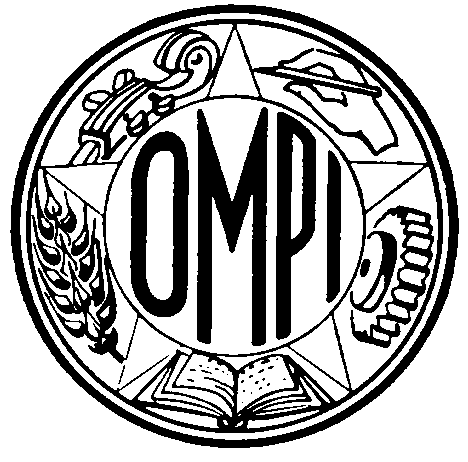 A427 PÁGINA 3 OMPI S A427 ORIGINAL INGLÉS FECHA
A427 PÁGINA 3 OMPI S A427 ORIGINAL INGLÉS FECHA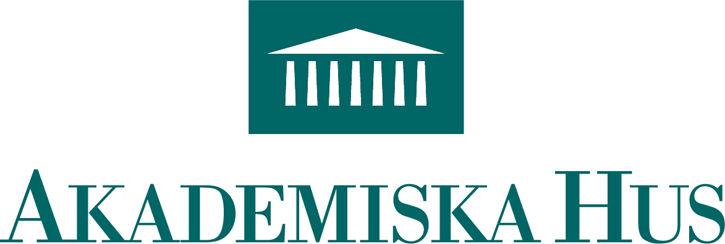 UPPSALA 6 OKTOBER 2008 INFORMATION OM BYGGNATION INOM KV
UPPSALA 6 OKTOBER 2008 INFORMATION OM BYGGNATION INOM KV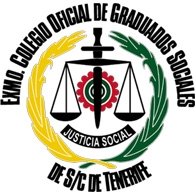 SOLICITUD DE VENIA PROFESIONAL SRA DDª COLEGIADOA Nº
SOLICITUD DE VENIA PROFESIONAL SRA DDª COLEGIADOA Nº